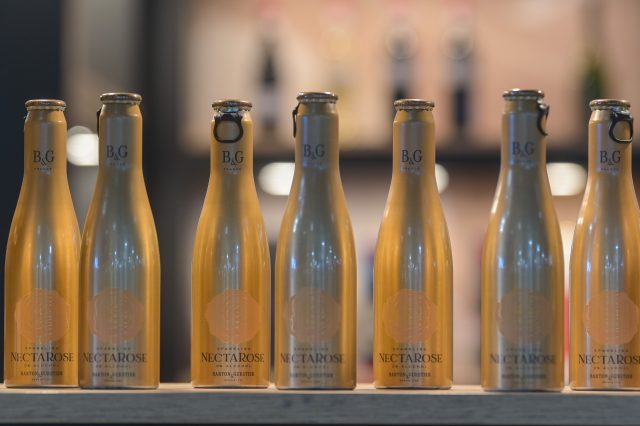This website uses cookies so that we can provide you with the best user experience possible. Cookie information is stored in your browser and performs functions such as recognising you when you return to our website and helping our team to understand which sections of the website you find most interesting and useful.
Barton & Guestier targets younger drinkers with alcohol-free sparkling rosé
Bordeaux-based Barton & Guestier has launched NectaRose, a new alcohol-free sparkling rosé housed in a 250ml aluminum bottle, designed to target younger drinkers and reduce the brand’s carbon footprint.

B&G NectaRose is an alcohol-free premium sparkling rosé created without preservatives, with no added sugar and sulphites. The new serve is also vegan friendly and halal suitable.
The Bordeaux-based producer has launched the new serve in a 250ml aluminium bottle, moving forward with its corporate social responsibility strategy. Barton & Guestier’s two main goals are simple: to obtain environmental certifications for all its brands, and reducing the company’s overall carbon footprint by responsible product development and purchasing.
Petra Frebault, trade marketing and communication manager for the company, told db that the transport of goods accounts for 85% of Barton & Guestier’s overall carbon footprint. To combat this, B&G is focusing on responsible product development, favouring lightweight bottles, recycled paper for labels and vegetable ink dyes, as well as carton outer shippers.

NectaRose, the latest launch, is a key part of this approach. The smaller format aluminium bottles are more lightweight than glass — weighing just 35g when empty — and can be recycled.
The sparkling alcohol-free rosé, based on organic grape juice, also taps into the growing ready-to-drink (RTD) category. Barton & Guestier looks to tap into younger consumers with the new serve, particularly focusing on female consumers, and people engaging with the moderate consumption trend.
Barton & Guestier has had a long-term commitment to sustainability, but is increasing its focus on the subject, aiming to reduce its carbon footprint, and obtaining environmental certifications for its brands. The French winemaking group spoke to db in October about some of its goals. Read more about what deputy general manager Philippe Marion said here.
Related news
UK Christmas lights could buy 14 million mulled wines

